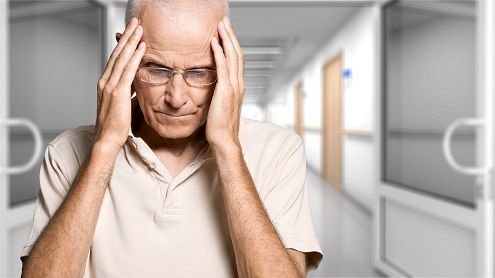Article
Depression Risk Greater Soon after a Stroke
Author(s):
About a quarter of stroke patients were diagnosed with depression within two years of their stroke, researchers learned. Additionally, half of the cases of stroke patients who developed depression were diagnosed within the first three months.

In the three-month period after experiencing a stroke, the risk for developing depression is as much as eight times higher, according to findings published in JAMA Psychiatry.
Researchers from Copenhagen University analyzed patients from a register based cohort study in Denmark in order to examine whether the incidence of and risk factors for depression differ for patients with stroke compared to a reference population without stroke. Additionally, the researchers wanted to assess how depression influences mortality. All patients were older than age 15 years; about 157,000 patients had a first time hospitalization for a stroke between January 1, 2001 and December 31, 2011, while a reference, non stroke, hospitalized population was matched for age, sex and municipality. The investigators defined outcomes out depression by using hospital discharge diagnoses or antidepressant medication use.
About a quarter of the stroke patients were diagnosed with depression within two years of their stroke, the researchers learned. Additionally, half of the cases of stroke patients who developed depression were diagnosed within the first three months, they found. In comparison, the non stroke population was diagnosed with depression at a rate of about 8 percent within two years, while only about a quarter of those cases developed depression within the first three months of discharge. Thus, the researchers extrapolated that the risk of depression in patients during the first three months after their stroke was eight times higher than the reference population.
Significant risk for depression for patients with stroke and the reference population included older age, female sex, a solitary living situation, a basic education level, diabetes, high level of somatic comorbidity, history of depression and stroke severity (for stroke patients) the researchers elaborated.
Mortality related to depression was approximately twice as high in the reference population than the stroke population, though similar patterns were found for natural and unnatural causes of death in both populations.
"Depression is common in patients with stroke during the first year after diagnosis, and those with prior depression or severe stroke are especially at risk," the study authors concluded. "Because a large number of deaths can be attributable to depression after stroke, clinicians should be aware of this risk.
Related Coverage:
Strong Social Circles Shorten Stays in Stroke Rehab Facilities
More Can Be Done for Patients Who Had Minor Strokes
Younger Women Have a Higher Risk of Pregnancy-Associated Stroke





